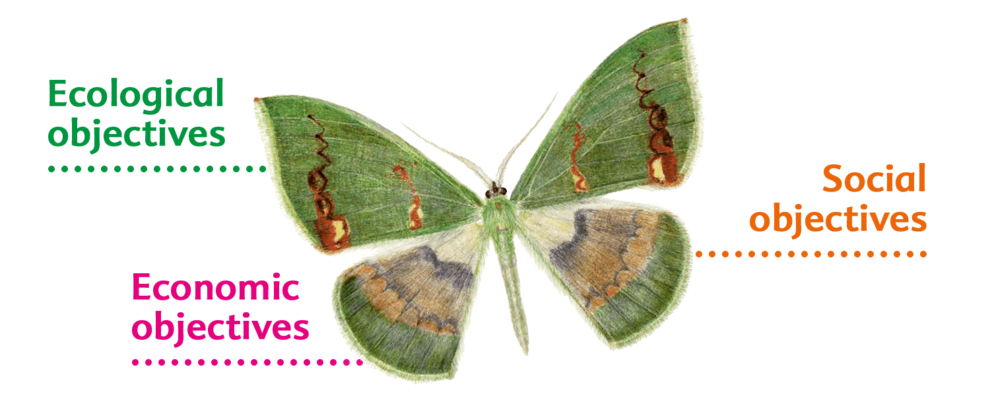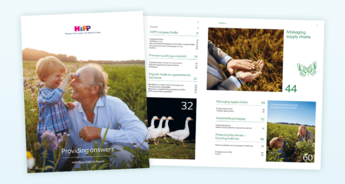Sustainability as a corporate philosophy

Sustainability means striking the right balance between the three dimensions of ecology, economy and social aspects.
If we design our environment, our social lives and our economy in a sustainable way, then we will secure both our future and the chance of future generations to have lives worth living. We are acting sustainably when we can continue to do what we do forever under the same conditions.
At HiPP, we are dedicated to maintaining a harmonious balance between the nature and the people. Our objective is to preserve the foundations of life through the careful use of natural resources.
In line with this approach, HiPP develops appropriate measures and places a strong emphasis on sustainable corporate management.
HiPP has been dedicated to preserving nature for decades through measures such as banning green genetic engineering, avoiding the use of fossil raw materials, reducing other resource consumption and researching near-natural agricultural methods.
The EMAS* environmental management system was introduced at the Pfaffenhofen site in 1995, and EMASplus** in 2018 at all other HiPP sites in the European Union. These management systems are designed to implement a sustainable way of working in the family business, with the aim of continuously improving corporate processes in the area of sustainability.
Further development is a key priority for HiPP, which is why the company has now chosen to pursue the additional "We Impact" certification. This is an extension of EMASplus, which provides support to companies in integrating systematic environmental, social and governance aspects into their operational processes. The requirements of statutory regulations, including the Corporate Sustainability Reporting Directive and the Supply Chain Sustainability Act, are taken into account, as well as ISO14001*** and environmental and social aspects.
HiPP's approach to sustainability encompasses people as well as the environment. The company is taking another significant step with the „We Impact System“, focusing more closely on the social aspect of its internal corporate processes.
If you are interested in the topic of “Sustainability at HiPP” in more detail, you will find further information material in our Sustainability Report 2022 below or discover more information about organic farming at HiPP.
HiPP Responsibility Report
What does HiPP do to protect the environment and act sustainably?
Find out more about environmental and sustainability management
*Environmental Management System EMAS (Eco Management and Audit Scheme)
** EMASplus (Eco Management and Audit Scheme) is based on the European EMAS system (Eco Management and Audit Scheme) and expands environmental management to include the social and economic perspective, creating an integrated and holistic management system. (Source: www.we-impact.de, accessed 01/10/2024)
*** ISO 14001 is an international standard that covers all aspects of continuous improvement in environmental performance. It is an environmental management system, that promotes environmental protection, reduces environmental impacts and ensures the proper implementation of environmental objectives in line with economic, social and political requirements. (Source: www.tuvsud.de, accessed 01.10.2024)




